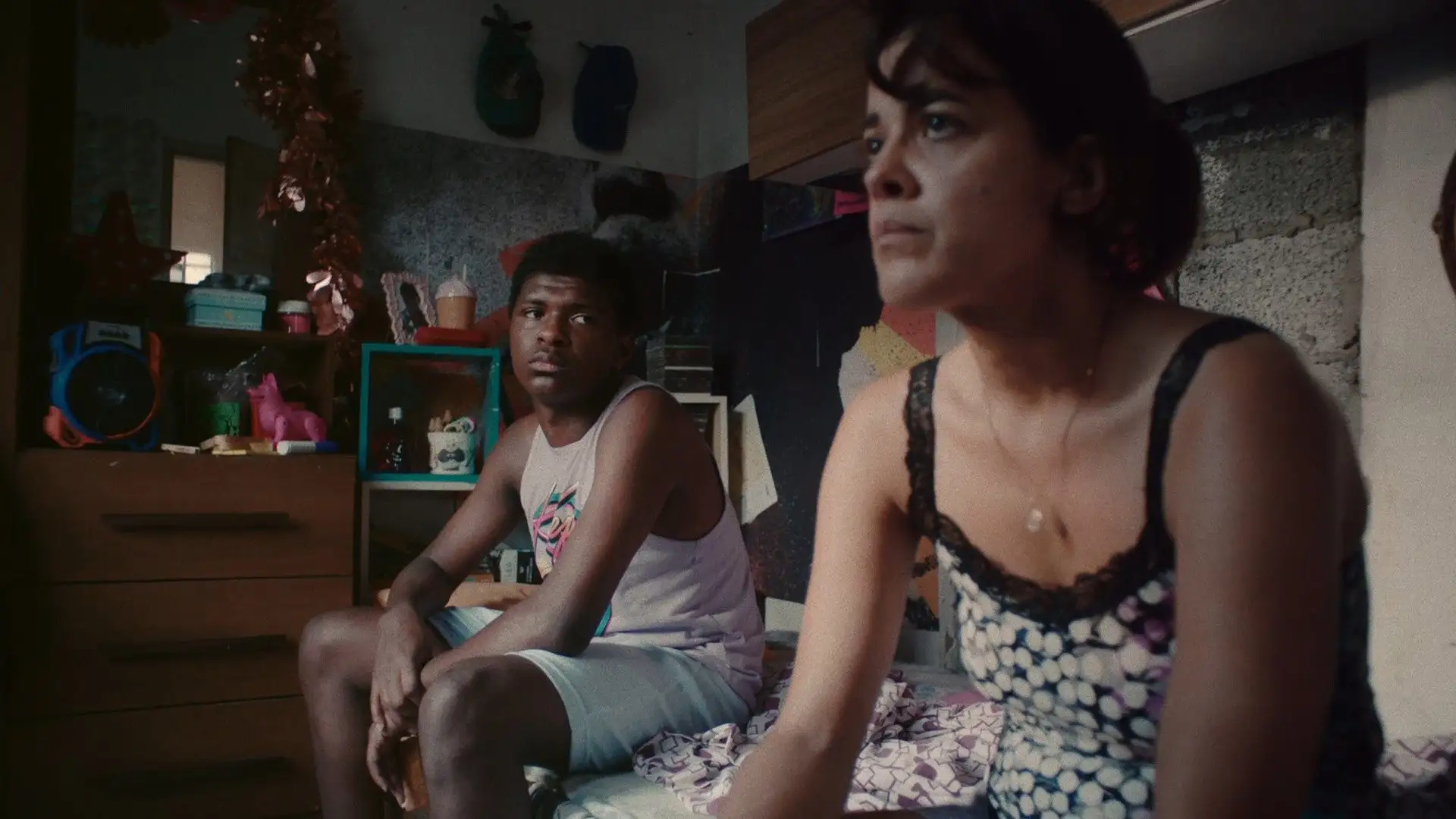It’s a rare gift to see a film as gentle and compassionate as filmmaker Carolina Markowicz’s new offering Toll. The setting is Brazil. In a working-class community, single mom, Suellen (Maeve Jinkings) is raising her 17-year-old son Tiquinho (Kauan Alvarenga). She starts each day before the sun rises by praying to the sunrise and lighting a virility candle for her son. Then she heads off to work at a highway toll booth. When “friend” Telma (Aline Marta Maia), lets Suellen know that Tiquinho has been posting flamboyant videos on social media, Suellen realizes that something more may be needed to “fix” Tiquinho. Filmmaker Markowicz sets up a mirror maze of moral superiority conundrums that never seems to accuse as much as it wants to relate to the moral dilemmas the characters face. We are asked to sit back, consider, and understand motives over conviction.
Suellen’s boyfriend Arauto (Thomas Aquino) lay naked in Suellen’s bed at the beginning of the film. Living in sin, she wakes up to hopefully fix her son’s homosexuality by lighting the aforementioned virility candle. Later Suellen discovers that her boyfriend Arauto is involved in organized crime and kicks him out. After learning about her son’s social media posts, Suellen’s friend Telma suggests a rather expensive conversion therapy seminar for Tiquinho. So now we are back to 1 and 1 on the moral superiority scoreboard. Instantly, Suellen is fine with doing whatever it takes to earn an absurd amount of money to “fix” Tiquinho by enrolling him in conversion therapy. If that means utilizing her position at work to target robbery victims, so be it.
Markowicz guides the narrative with an interest in why a character makes a flawed decision rather than showing the audience why the decisions are bad. Suellen wants the best for her son. Tiquinho is learning himself while coming into adulthood. Telma clings to a broken mechanism of morality. Arauto just does what yields results. The scenes at the conversion therapy seminar are even staged with comically pompous pageantry. Led by Pastor Isac (Isac Graça), the sessions are banal affirmations in heteronormative understandings that do little for those present.
Jinkings phenomenal performance as the concerned other Suellen is consistent and brutally honest. She has a lot going on and, in a community of homophobia, she is hoping to save her son from certain adversity. Her motives are true. She is equaled by Alvarenga’s Tiquinho who gives a lazily petulant performance that is sincere as it is true. Tiquinho is a blossoming flower of glamour amidst the monochromatic society. He doesn’t know his power. He doesn’t know his options. Still, he loves his mom.
Toll is a breath of fresh air to the usual stories of oppression in the queer community. Here we see the path forward rather than observing why progress is difficult. Markowicz guides a lilting narrative that is unpredictable yet consistently enthralling. I want to believe that at some point we won’t have to watch films that teach us a level of understanding and compassion. Until then, here we are.
TOLL Review – 8 of 10



